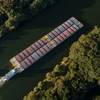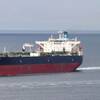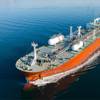A U.S. Federal judge in the Northern California District has granted INTERTANKO's Motion to Intervene on the court's decision that the Environmental Protection Agency's (EPA) exemption of ballast water discharges from the permit requirements of the National Pollutant Discharge Elimination System (NPDES) was improper under the Clean Water Act.
INTERTANKO filed this motion along with industry coalition partners the American Waterways Operators (AWO), the Chamber of Shipping of America (CSA), the Lake Carriers' Association (LCA), the World Shipping Council (WSC) and the International Council of Cruise Lines (ICCL), referred to as the Shipping Industry Ballast Water Coalition, which is now a party in this case.
As a party in the case, the Shipping Industry Ballast Water Coalition was permitted to participate in the Case Management Conference requested by the judge on Friday. At this conference, the parties agreed to brief the issue on the following tentative schedule:
- August 19 – plaintiff (Northeast Environmental Advocates) and plaintiff intervener states (Great Lakes states) briefs due.
- Mid-September – defendant (EPA) and defendant intervener (Coalition) briefs due.
- Mid-October – plaintiff and plaintiff intervener states reply brief due
- November 1 – hearing in Federal District Court for the Northern District of California.
In December 2003, the Northwest Environmental Advocates (and others) challenged EPA's regulation that exempted certain vessel discharges from the Clean Water Act requirement for obtaining permits prior to discharging certain pollutants. The court ruled that the EPA acted outside its statutory authority in exempting these discharges from the NPDES permit programme. At the moment, the EPA regulation is still in place, but at issue are the regulations that govern the discharge of ballast water and other discharges incidental to the operation of a ship within U.S. waters.
The broad industry coalition partners have joined forces to file a motion to intervene with the district court to become parties to this case and to be involved in the remedial phase of the case. In filing its declaration, INTERTANKO stated, "We are very concerned that a new rulemaking on ballast water could disrupt significant efforts already underway internationally to control ballast water discharges in a manner that allows for interstate and foreign commerce to proceed in a reasonable manner".
Subscribe for
Maritime Reporter E-News
Maritime Reporter E-News is the maritime industry's largest circulation and most authoritative ENews Service, delivered to your Email five times per week










